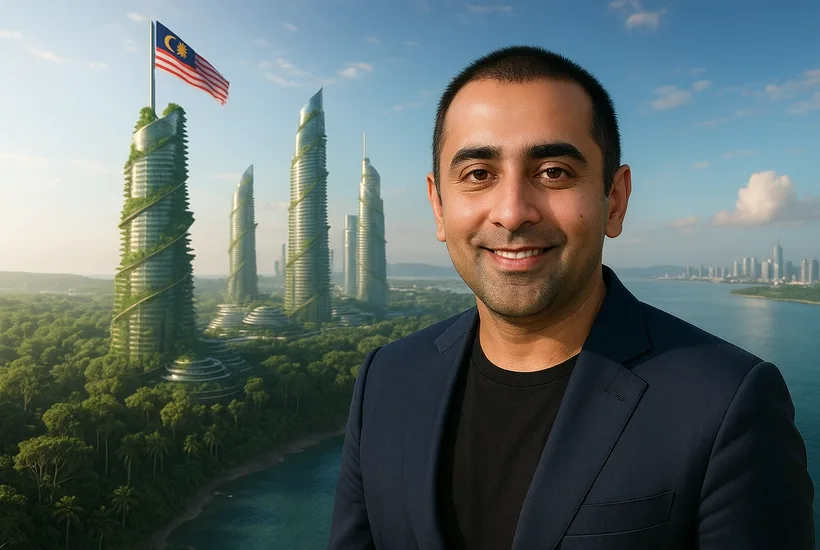- Balaji Srinivasan has chosen Malaysia’s struggling Forest City megaproject as the testing ground for his “network state” vision.
- Nearly 400 students pay $1,500 a month to join the Network School.
- Malaysian authorities have given incentives like duty-free status and zero-percent tax rates for family offices are likely to attract investors
Crypto investor and former Coinbase CTO Balaji Srinivasan wants to take a bold and unconventional path in exploring a fresh model for a nation-state. According to Bloomberg, his adventurous experiment is unfolding in Malaysia, where Srinivasan is turning the underdeveloped megaproject called Forest City into a real-world laboratory for his ideas.
Forest City, on the coast of Johor near Singapore, was first envisioned as a massive development. However, it never reached full occupancy and now stands largely underutilized. This makes it an ideal test-site for Srinivasan’s vision of a “startup society”.
The Network School pilot
At the heart of this experiment is the Network School, a program that attracts nearly 400 students. Participants live together on campus, where they explore concepts such as decentralized governance, cryptocurrency-based citizenship, and digital sovereignty. Students pay a fee of $1,500 per month and learn and experiment in designing new societies from the ground up, rather than relying on traditional nation-state systems.
Newsletter
Get weekly updates on the newest crypto stories, case studies and tips right in your mailbox.
Part of the curriculum involves mornings dedicated to hands-on work on crypto projects, while afternoons see students discussing blockchain governance and Singaporean-style statecraft.
This initiative stems from Srinivasan’s “network state” philosophy, which he outlined in his 2022 book The Network State: How To Start a New Country. The idea is that digitally aligned communities will come together because of their shared values rather than geography. These communities can crowdfund their own city-like spaces, leverage blockchain-based governance, and eventually seek formal diplomatic recognition.
Malaysia’s Forest City presents a uniquely flexible and supportive backdrop for such experimentation. Its proximity to Singapore’s airport gives it an advantage logistically. Moreover, the Malaysian authorities have offered incentives like duty-free status and zero-percent tax rates for family offices to attract innovation and revitalization.













